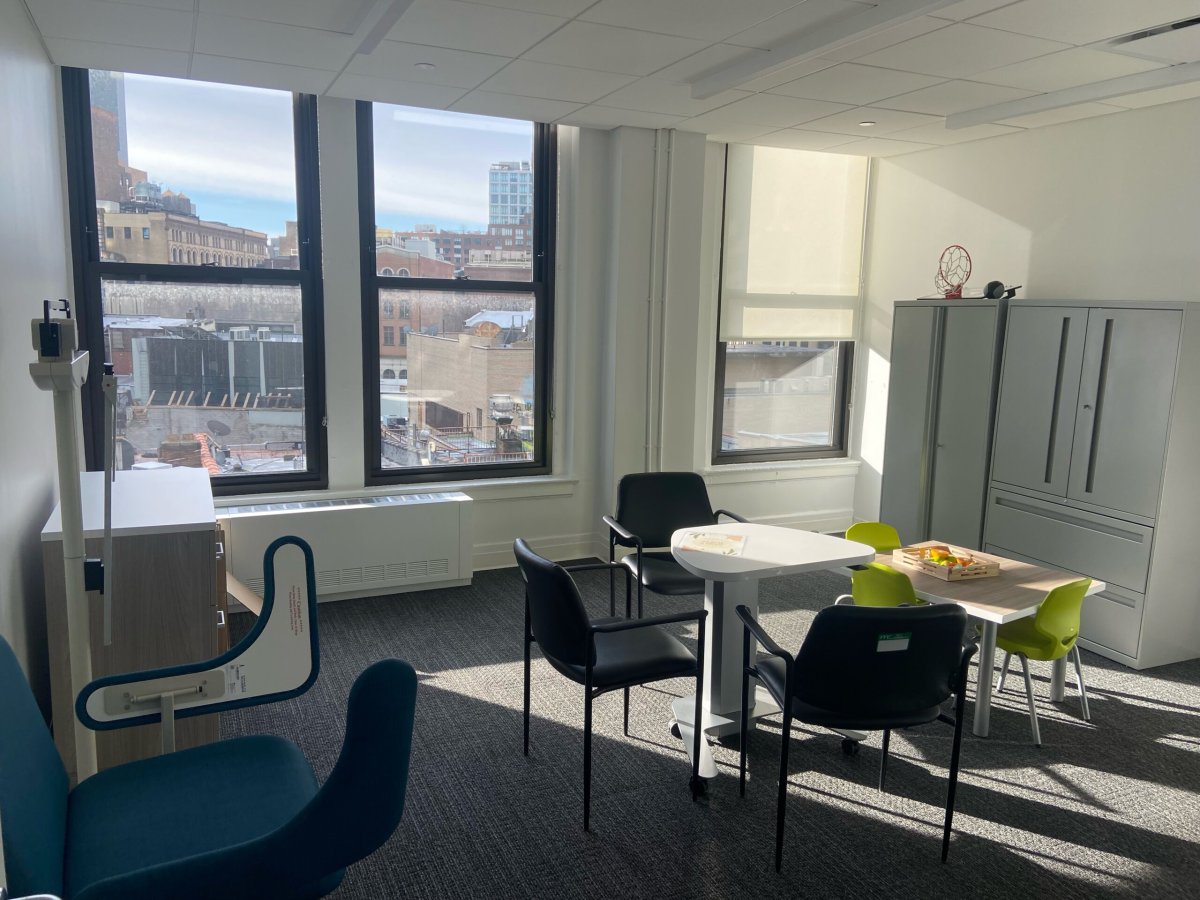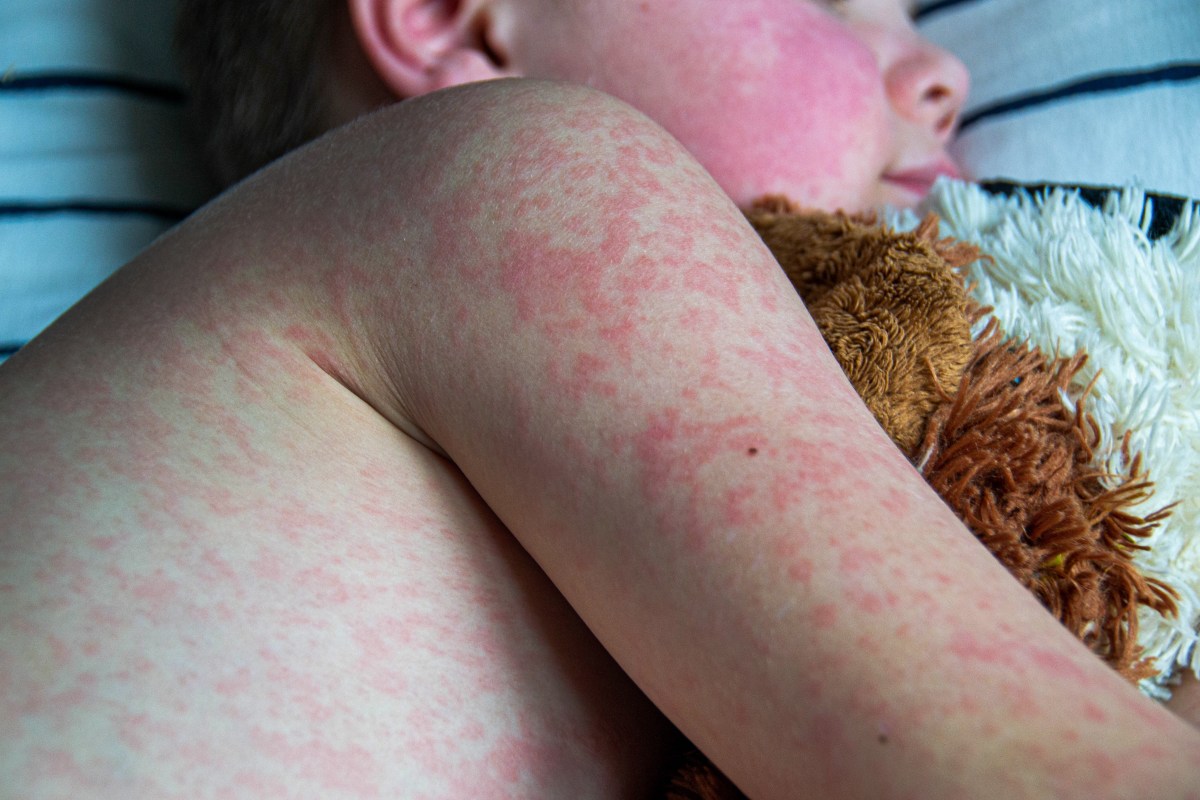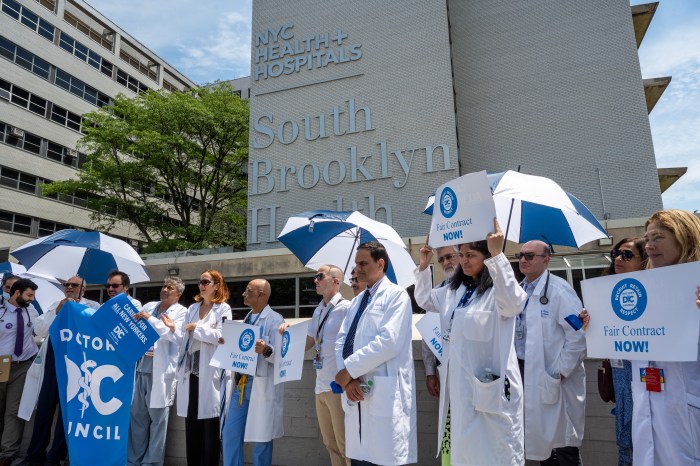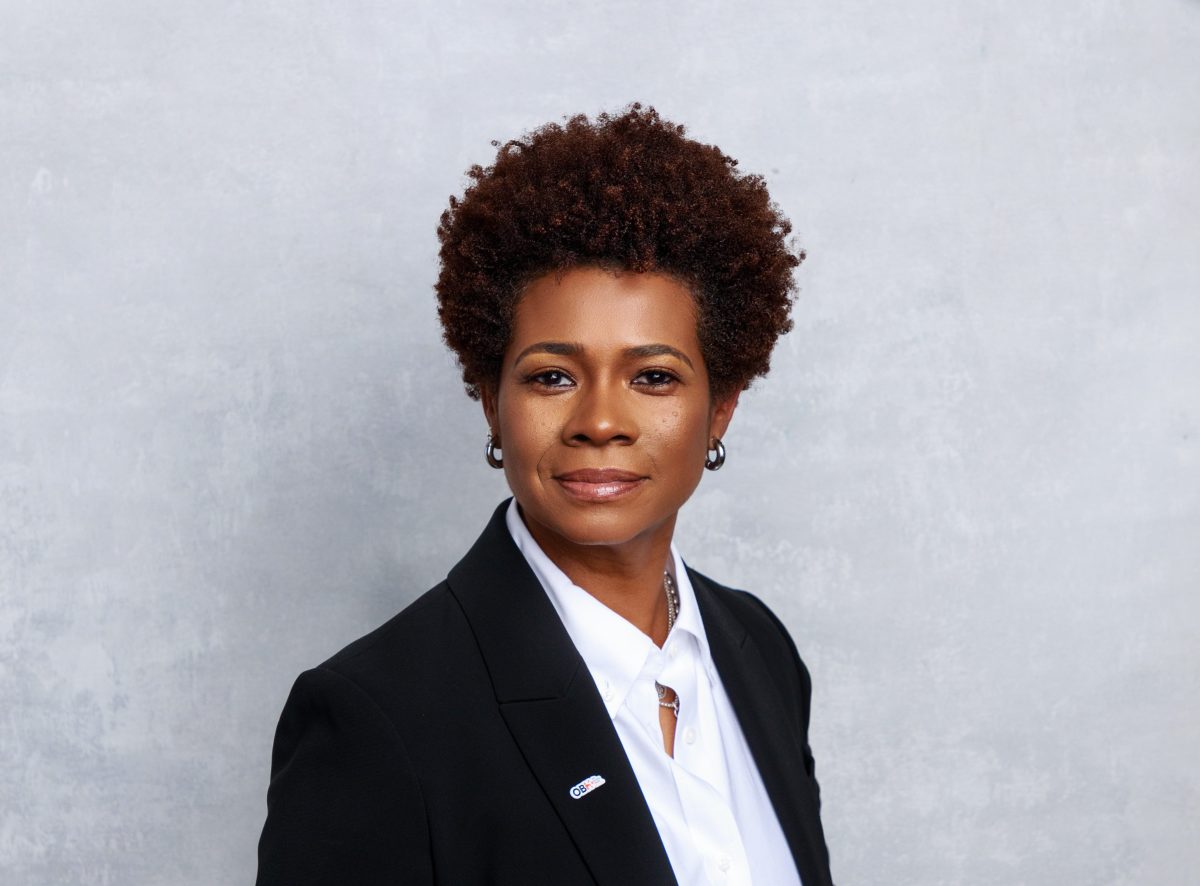The JCCA has opened a new state-of-the-art clinical location in Downtown Brooklyn to help clients and their families with behavioral, foster care and educational services.
Originally founded in 1822, the JCCA was established to provide high quality child welfare and now helps young people with their mental health and physical needs through nearly 40 programs throughout New York.
The new outpatient clinic location in Downtown Brooklyn came after the JCCA offices in Manhattan and in East Flatbush were consolidated to give the organization a larger, more centralized location for their clients to easily access their services. The move was preempted by the JCCA’s need for a larger space, and also because the organization has been pivoting to accommodate the needs of their clients especially following the pandemic.
“The agency at large is kind of shifting some of its focus,” said JCCA’s Brooklyn program director Sarah Johansson. “For a very long time it’s been a child welfare agency with add-ons of behavioral health. They have in the past, I’d say two years, really shifted the focus to grow more behavioral health and wellness programs which means they want to see the clinic expand.”
This expansion will hopefully allow the JCCA to care for even more patients than the current 100 that they now work with in Brooklyn, while also eventually raising the age limit for care from 21 years of age to 26. Currently, new patients must be under 18 to be eligible for care but the facility serves all children from ages 4 to 21.
The JCCA also places a significant emphasis on holistic care by working with the children and their families, so many clients also participate in family therapy to ensure that they are getting the most out of the resources provided by the facility.
In order to access the programs and care available through the JCCA, patients can self-refer or be referred from an external source. Clients can then work with clinicians and mental health experts to tailor their treatment to meet all their needs. Once at the JCCA, patients work on tackling their mental health or behavioral issues through counseling, psychiatric evaluations, medication management and specialized care like eye movement desensitization reprocessing.
“We get a whole slew of presentations,” Johansson said. “In teenagers there’s a lot of trauma work because a lot of the kids we see live in communities that have a really hard time or maybe they just had some hardship. Ever since the pandemic there’s been such an uprise in that fair amount of anxiety and depression… So it’s kind of exciting in that sense that we really get to support kids with what they need.”
Once a client is referred or seeks out JCCA services, their insurance is reviewed and cleared before they are paired with a clinician who specializes in whatever the patient needs support with be it for mental health, preventive care to allow children to remain with their families, foster care support or other needs.

“In addition to the clinic that we have, which is an Article 31 behavioral health and community-based clinic, we offer families support through our care management or health homes services,” said JCCA CEO and executive director Ron Richter. “So that’s for families that don’t necessarily have anything to do with child welfare, but have a child in their care that has two or more presenting conditions that allows them to have what’s called a care manager. Our goal is to be available [and] to ensure that everyone is aware that we offer mental health services that are community-based.”
Nationwide, mental health in children has declined following the COVID-19 pandemic, and the new JCCA clinic in Brooklyn aims to address the growing need for comprehensive mental healthcare.
“There’s no question that all of our efforts to serve teenagers in particular have to be informed by the fact that they were closed off for a couple of years from their peers, from their teachers, from their coaches and have lived through something that we can only begin to understand,” Richter said. “What we can do as a provider is make sure that we are actively listening to young people’s experiences and trying to communicate with them that everyone was impacted and that it is totally normal to be stressed out about what happened regarding the pandemic. To affirm the feeling that what they’re feeling is okay and that by talking about it you will ease some of your stress.”
With the JCCA marking their official opening with a ribbon-cutting ceremony on Thursday, the new facility is now available for young people and their caregivers to seek out the extra support they may need to be successful, happy and healthy individuals.
“I’m really proud of the team that we have,” said Johansson. “They have such an ownership over the work that they are doing and they’re so excited about serving more kids and growing. For a lot of mental health clinics, the caseloads are so high and clinicians are not getting a lot of training so I at times question the quality of services they might be able to provide. Whereas here, the clinicians are really honing their skills and they’re really excited about the work.”























